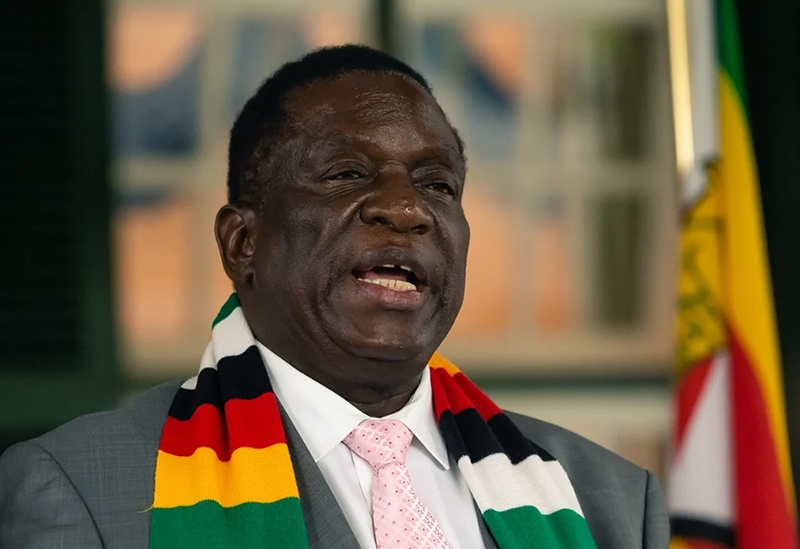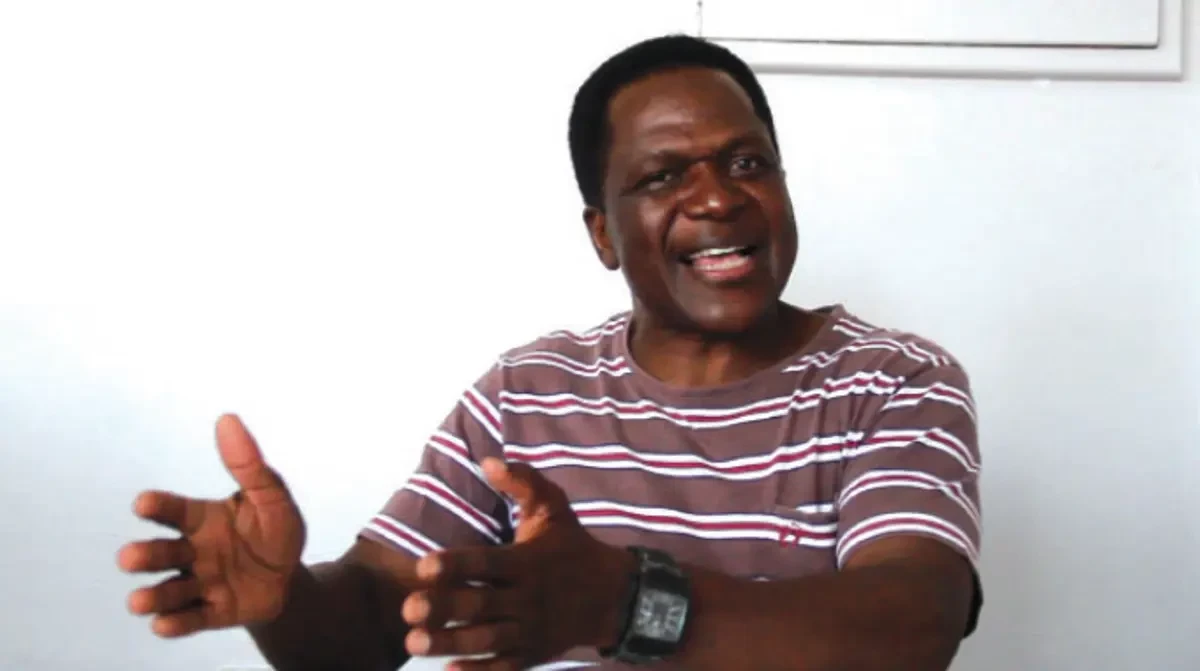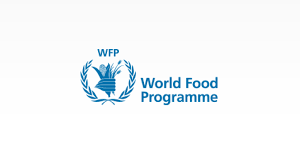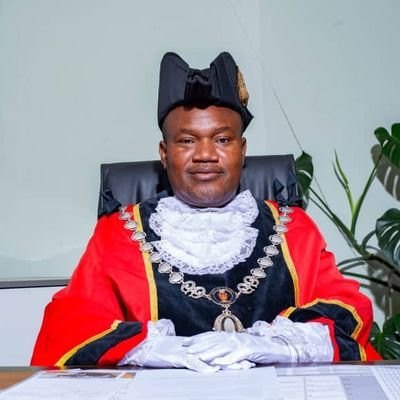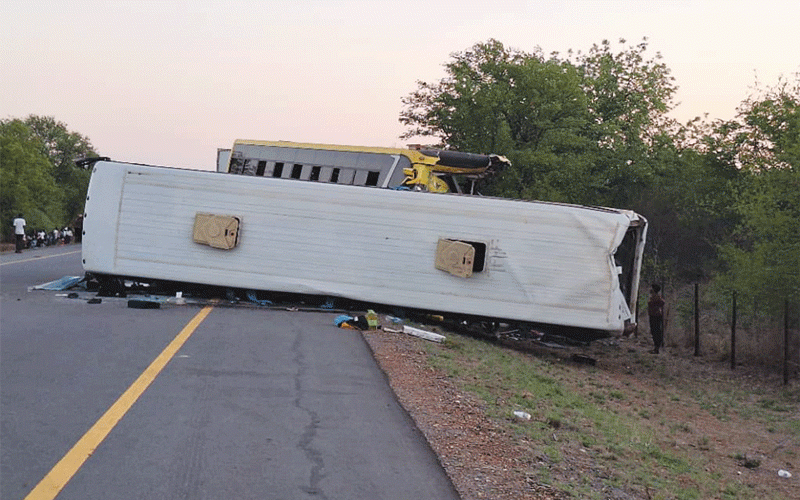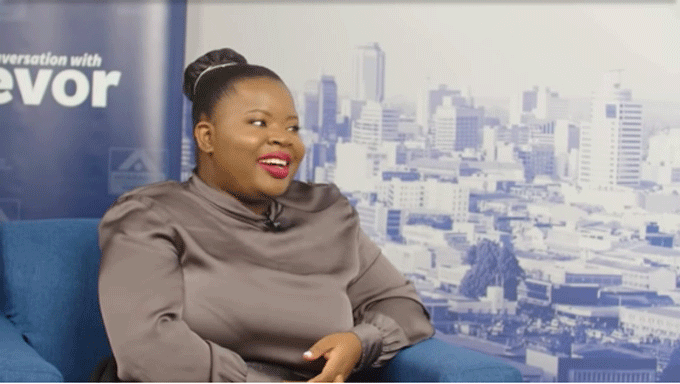
Chartered accountant Maud Chifamba says watching her mother suffer because of patriarchy moulded her into a feminist.
Chifamba (MC), who made history in 2012 when she enrolled for an accounting degree at the University of Zimbabwe aged 14, told Alpha Media Holdings chairman Trevor Ncube on the platform In Conversation with Trevor, that watching her mother being poorly treated forced her to make a vow that she would not marry.
Below are excerpts from the interview.
TN: Maud Chifamba, welcome to In Conversation With Trevor.
MC: Thank you so much Trevor. I should mention, that I am honoured to be here.
I follow your conversations and I never thought I would be here.
So I was actually very shocked when you said come and let’s talk.
So I am very honoured to be here.
- Chamisa under fire over US$120K donation
- Mavhunga puts DeMbare into Chibuku quarterfinals
- Pension funds bet on Cabora Bassa oilfields
- Councils defy govt fire tender directive
Keep Reading
TN: Thank you for your kind words.
- You are here because your story to me embodies the notion that how we start does not determine how our lives end.
- Also that our loss does not actually determine our future.
- You lost your father when you were five years old.
- You lost your mother in 2011 when you were 13 years old.
- So essentially you have grown up as an orphan, but you have gone on to do such amazing work.
- How do you explain how your life has tuned out?
MC: Typically, I would say grace, where you know a number of things just happened, like merit and favour just finds you.
But usually where I am in conversation with you, I do not want to say grace per se because I feel like grace negates all the other things that have happened.
So I do get there are people who work just as much as I do, harder than I do, people who probably deserve the chances I got more than I did, but who never got them, but I did.
So I do get that part, but I also do not want to discount the hard work that it took.
I do not want to discount the collaboration from strangers that it took.
I do not want to negate the community that came together for me to then get to where I am.
So I think that would be my take.
TN: Is that not all grace?
- The community, the collaboration, the people that came in to help you?
- We will talk about that. Is that not itself grace? The hand of God, the underserved favour of God moving you towards your destiny, towards your purpose?
MC: It is. I do not disagree with that, because some of the things I cannot explain myself.
However, what I do not like is the interpretation that you can just sit at home and grace will find you and one day you are going to wake up with things.
Probably it happens, but I also think you need to work while God then does the grace.
TN: I think agree with you there.
- The notion that you sit at home, you do not do anything and grace finds you, you end up being a doctor without going to school, that does not happen.
MC: Exactly!
TN: So we need to put that into context. Is that what you are saying then?
MC: Yes exactly, that is what I am saying.
It is a very dangerous cliché, where you ask someone how they became who they are, and they answer you that ‘oh was grace,’ but they do not tell you that they did A, B, C, D, E, & F and grace found them on the path.
So that is what I am trying to say in that there was grace, but there were also other inputs.
TN: Okay. Talk to me now about, as I have already said you grew up actually as an orphan, and you grew up with family circumstances for lack of a better word, poverty, and difficulty.
- Describe to us your upbringing as far back as you can remember?
- How tough it was and the breaks that you did get?
MC: Phew. We are going to go the whole hour!
I was born in a small village in Gokwe South.
My family was just doing peasant farming. I call it peasant framing because it was generally just to get ourselves food.
We did not even have cattle to use in the fields.
So if you are in the rural areas and you do not have cattle what are you doing? You know?
Our household was actually known as the poor guys, and they were a lot of us in the house, but one thing that my family always did, and I credit it mostly to my Dad was if I was going to change my life it was going to be through education.
I am a firstborn, and I did feel the burden that I needed to change my family’s life for lack of a better term.
I did not think I had other options.
After being born in Gokwe up until about five years old, I actually did preschool there.
After the death of my father I had to go and live in Kewkwe along Hunters Road.
At least in Gokwe we had family, we had a community and the school was very close to home. Hunters Road was a new resettlement area. We got land there.
TN: Your father got land there?
MC: No my brother, the one I was now staying with, my older brother, half brother.
So I moved to Hunters Road basically. The school was so far away, it was more than 8km away.
Then that first day I got there I was like you know what, this school is too far I cannot do this for seven years.
What if I go there and say I am in Grade 2 instead of Grade 1? Hahaha.
I was like so tiny, the teacher could really tell this is not a Grade 2, this is such a young child.
I only lasted half a day and they asked one of my other half-brothers and said “What grade was this child at her previous school?”
I hadn’t told him (my half brother) so he said to the teacher ‘she was in Grade 1.’
So I went back to Grade 1. At least at Connemera School we had porridge at break time, it was so far away so we would wake up at 5am to start walking to school.
The good thing is we used to get porridge at break time.
School finished at 12 if you were in Grade 1 and 2, but then because of the forest that was there you could not go back home.
So we had or wait for our older brothers and sisters, and we would eat all kinds of wild fruits.
Looking back, it is like I just do not know how I made it out, but back then it was pretty normal to us.
We would be like normal kids just coming back from school.
The villagers then turned a farmhouse into a school, so we at least then had a school that was 6km away.
I do not want to lie though, my upbringing makes me appreciate everything I have now because things were hard, from getting food on the table.
Hunters Road is not a farming place, the white farmer who was there actually used it to keep cattle.
He would not do crop farming because there used to be droughts over there.
I do not think it is actually in a region to be able to sustain any crop farming.
So we would try farming, but it would not work.
I remember sometimes that we would get inputs from the Government, we would wash the seed and make sadza because things were so hard.
That is when my family started trying vending. That is when my brother would go to Binga and buy fish, salt them and then we would sell them along the Harare/Bulawayo Road.
I also used to help in the business and also after primary school there was no high school as there was no school for me to go to.
So those were the circumstances that I grew up in.
I was also like a girl, so being a rural setup there was the need to attend to the fields but there were also other things that would come up.
Looking for water, looking for firewood and all those duties that are meant to be done by girls at home. I feel like my upbringing was a lot.
TN: It was tough?
MC: Yeah, it was tough.
TN: Do you think it has left scars on you? Do you feel those scars at all when you look back? Do you do that?
MC: Yes. My upbringing shaped in a way who I am.
TN: How?
MC: I grew up in a family full of boys. So you will notice that most times I tend to act like a boy.
I actually think that the sheer determination that I have is from that.
That is the first thing I would say that I got from my upbringing.
My family was not just poor, it was very dysfunctional.
So from there watching my Father and mother, my brothers, I knew marriage was not for me.
You know like the community I grew up in, even up to now, I do not have a cousin that gets to live to 16 years old without having been married.
All my cousins get married before 16 years old.
It was a community where child marriage is rife.
So the expectation for a girl would never be to send her to school, the expectation is that a girl child would get married off.
For me I knew that was not an option because I watched my mother and I said to myself I do not want this life.
I did not want it for me.
Then also the poverty drove me to say there has to be something else in life other than eating green sadza, or eating red sadza, and it made me treat my education with respect.
I gave it some solemnity, because it was solemn to me. It was a way out (of poverty).
Then also being in a family with boys and being in a rural setup, you see the boys are just sitting over there, and you cannot read because you have to fetch firewood but the boys are not interested in reading.
They are just sitting because it is not expected of them to be helping you fetch firewood, to be helping you fetch the water, helping you with the cooking.
They get away with things, so I think it made me a feminist.
TN: You have said a couple of interesting things Maud. One, how old were you when you were making this observation? Do you remember? Do you recall?
MC: So being taught about education, I think because the education bit comes from my dad, and then through my brothers only later but mainly from my dad.
From as a long as I can remember, I think from about four years old, I would witness the dysfunction in my family. So I would say I do not want this.
TN: Wow. You know why I ask this because that is is very striking. Three things; one, as early as that you say marriage is not for me?
MC: I hated my mother’s life.
TN: Why?
MC: I guess she was comfortable with it, but I just did not understand why she could not make money for herself.
I did not understand why she had to be beaten.
In my family there is that whole thing of a Dare, where the males just go and maybe discuss issues that are affecting everyone, and I did not understand that this woman (my mother) was taking care of everyone around here and there are dares going on and she does not even have a say.
So all those things made me fell like she was treated as less of a human, and I did not see any reason for that except she was a wife.
- “In Conversation With Trevor” is a weekly show broadcast on YouTube.com//InConversationWithTrevor. Please get your free YouTube subscription to this channel. The conversations are sponsored by Nyaradzo Group.
- Watch full episode on Youtube: https://www.youtube.com/watch?v=_W6vduTDnAw

